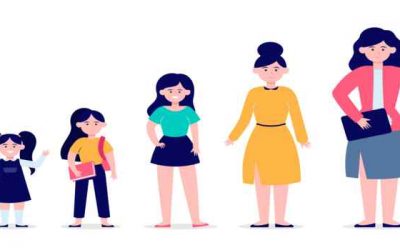
An interesting read by highly experienced IVF specialists of the best IVF centre in Delhi – Gunjan IVF World
Becoming a mother is one of the best things in life. But this dream of motherhood becomes a bit challenging for a few women. To fulfil their dreams, many such couples take help of IVF treatments. The reasons for a couple’s inability to conceive naturally could be many. One of the reasons could be related to a woman’s egg quality and quantity. For couples who fail to get pregnant using the woman’s own eggs for IVF, eggs from another woman which are known as donor eggs may be considered. IVF specialists of Gunjan IVF World, the best IVF centre in Ghaziabad share an interesting blog on one of the most common queries of couples – is there a possibility of getting pregnant with donor eggs?
“In the absence of good quality eggs in a woman, egg donation is often considered to help the woman embrace motherhood. Egg donation is the process in which a fertile woman donates an egg to help another woman conceive and give birth. It is important for you to know that the use of donor eggs is becoming extremely common among women over 40 years of age,” says Dr. Gunjan Gupta, Founder & Director, Gunjan IVF World – the best IVF center in Ghaziabad. Dr. Gunjan leads a team of highly experienced IVF specialists comprising Dr. Aastha Raheja, Dr. Garima Sharma, Dr. Anshu Dhar and Dr. Meenakshi Arya, who sit at our state-of-the-art clinics in Indirapuram, Janakpuri, Meerut and Noida (commencing soon).
“The answer to this common question is – yes, you can become pregnant using donor eggs. But before that, it is necessary to know what could be the reasons for the need of donor eggs,” says Dr. Garima Sharma, Consultant and Centre In-Charge of the best IVF clinic in Janakpuri – Gunjan IVF World. The possible reasons have been listed below.
– In case of premature ovarian failure – a condition in which menopause has started before the age of 40 years
– Diminished ovarian reserve – when quantity and quality of eggs are hampered after 40-years-age
– In cases where genetically transmitted disease might get passed to child
– In cases of previous IVF failures where egg quality posed a challenge
“For couples considering egg donation, counselling is an extremely important step and probably the first step towards fulfilling your parenthood dream. That is why, we always ensure that our patients understand the process first before taking a decision. Not just that, it is our responsibility to help couples make the right choice when it comes to egg donors,” added Dr. Aastha Raheja, Consultant at Gunjan IVF World – the best IVF clinic in Indirapuram and a leading IVF specialist Ghaziabad.
How is egg donation done?
The process of egg donation is almost similar to an IVF treatment. As a part of the procedure, the woman receiving the donor egg is administered hormones to prepare the body for the fertilised egg/embryo. Similarly, the donor woman is also administered hormones to create many healthy eggs. Once, the eggs are ready, they are retrieved and thawed for use. After this the embryos are transferred to the uterus of the woman receiving donor eggs/embryos. At times, donor eggs/embryos are frozen for use later.
What is the success rate of IVF with donor eggs?
“According to studies, IVF with donor eggs has an average success rate of 60-80% with fresh eggs and around 40-60% with frozen eggs. However, the success rate keeps changing on a case-to-case basis,” concluded Dr. Gunjan Gupta, a well-known IVF specialist of the best IVF clinic in Ghaziabad.
20+ Years Of Experience as Fertility Specialists
20 Years Of Experience as a Fertility Specialists
National Fertility Awards 2023
Call Us
+919990044555
Book An Appointment
Follow Us On
Related Blogs
Why is Nutrition Important During Adolescence?
Teenage years are one of the most exciting moments in life. During teenage, a body undergoes hormonal changes, weight gain or loss, growth, and physical changes.
What is the Difference Between Puberty and Adolescence?
Both puberty and adolescence are linked to one another. They depend on how these changes occur at this stage of life. Puberty and adolescence are closely associated with one another, but they are not the same thing.
Follow Us On
About Author





